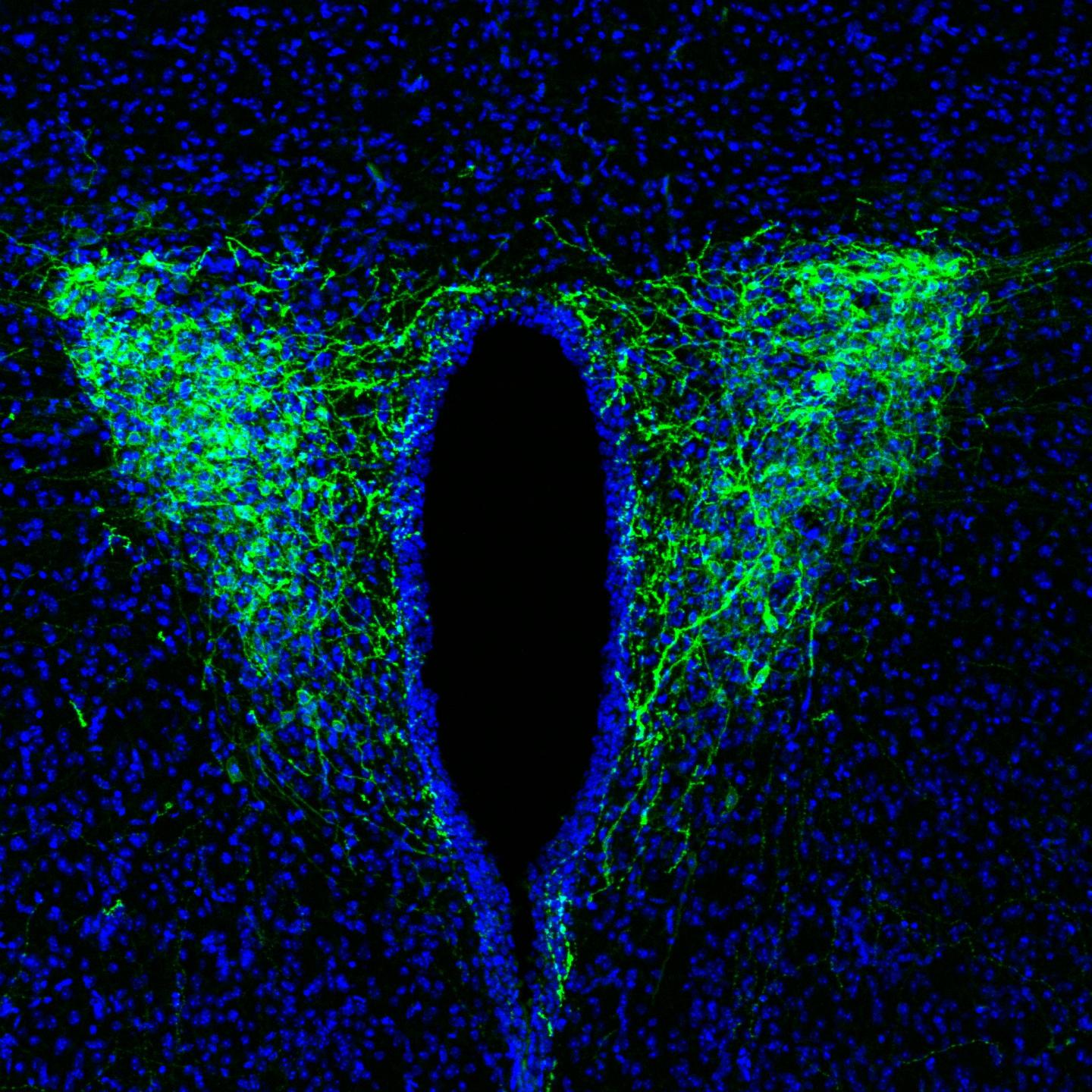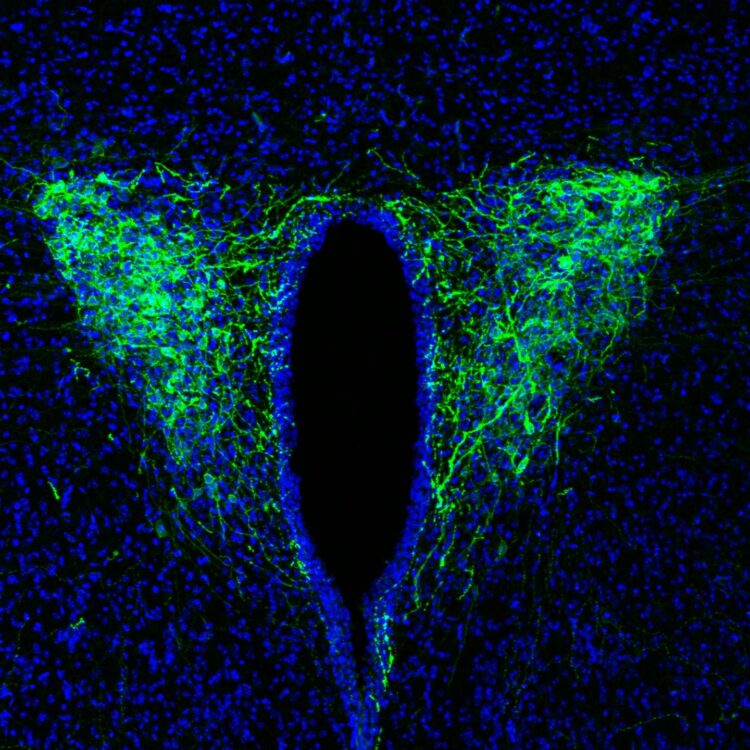The findings could lead to the development of new therapies for sleep disorders caused by stress or a disturbed circadian rhythm

Credit: Daisuke Ono
A Nagoya University-led research team in Japan has found a new neural pathway that links the circadian clock, stress, and wakefulness in mammals. The team identified a neuron, called the corticotropin-releasing factor (CRF) neuron, that becomes excessively active when the mammal is under stress, which could trigger insomnia and other sleep disorders. Their findings were recently published in the journal Science Advances.
Living organisms exhibit a 24-hour oscillation called the circadian rhythm. In mammals, the central circadian clock, located in the brain’s suprachiasmatic nucleus (SCN) neurons, regulates the sleep-wake cycle. However, in the event of life-threatening situations, the circadian rhythm signal is shut off to keep the animal awake so that it can escape from danger even when it would normally be time to sleep. Although the temporary shutoff of the sleep-wake cycle is necessary for survival, excessive or prolonged stress caused by such dangers can trigger insomnia and other sleep disorders.
“It is well-known that the circadian clock and stress have an effect on sleep, but it was unclear which neural pathway is crucial for the circadian regulation of sleep and wakefulness,” says Dr. Daisuke Ono of the Research Institute of Environmental Medicine at Nagoya University. To determine the pathway, a Nagoya University research team led by Prof. Akihiro Yamanaka and Dr. Ono, in collaboration with Takashi Sugiyama at Olympus Corporation in Japan, conducted a study using mice.
The researchers focused on CRF neurons — which are known to play a role in stress response — that are located in the paraventricular nucleus of the hypothalamus. They investigated how sleep and wakefulness in mice would be affected when the CRF neurons were activated. The results showed that the activated CRF neurons kept the animals awake and made them move around vigorously, indicating that their wakefulness was promoted. The researchers also observed that CRF neurons remained active when the mice were awake, and that when the neurons’ activity was suppressed, the animals’ wakefulness and locomotor activities were reduced.
Further investigations also showed that inhibitory neurons in the SCN, called GABAergic neurons, play a significant role in regulating the activity of CRF neurons, and that the activation of CRF neurons stimulates orexin neurons in the lateral hypothalamus, which results in the promotion of wakefulness.
The team thus concluded that GABAergic neurons in the SCN control the activity of CRF neurons, which ultimately regulates the sleep-wake cycle. “We identified this neural pathway in mice, which are nocturnal animals. Further studies are required to elucidate how the nocturnal and diurnal difference is regulated in the brain,” says Dr. Ono.
“In today’s society, sleep disorders are a serious problem. We hope our finding will contribute to the development of new therapies for insomnia and other sleep disorders caused by stress or a disturbed circadian rhythm.”
###
The paper, “The mammalian circadian pacemaker regulates wakefulness via CRF neurons in the paraventricular nucleus of the hypothalamus,” was published in the journal Science Advances on November 6, 2020, and is available at DOI 10.1126/sciadv.abd0384.
About Nagoya University, Japan
Nagoya University has a history of about 150 years, with its roots in a temporary medical school and hospital established in 1871, and was formally instituted as the last Imperial University of Japan in 1939. Although modest in size compared to the largest universities in Japan, Nagoya University has been pursuing excellence since its founding. Six of the 18 Japanese Nobel Prize-winners since 2000 did all or part of their Nobel Prize-winning work at Nagoya University: four in Physics – Toshihide Maskawa and Makoto Kobayashi in 2008, and Isamu Akasaki and Hiroshi Amano in 2014; and two in Chemistry – Ryoji Noyori in 2001 and Osamu Shimomura in 2008. In mathematics, Shigefumi Mori did his Fields Medal-winning work at the University. A number of other important discoveries have also been made at the University, including the Okazaki DNA Fragments by Reiji and Tsuneko Okazaki in the 1960s; and depletion forces by Sho Asakura and Fumio Oosawa in 1954.
Website: http://en.
Media Contact
Daisuke Ono
[email protected]
Original Source
http://en.
Related Journal Article
http://dx.





